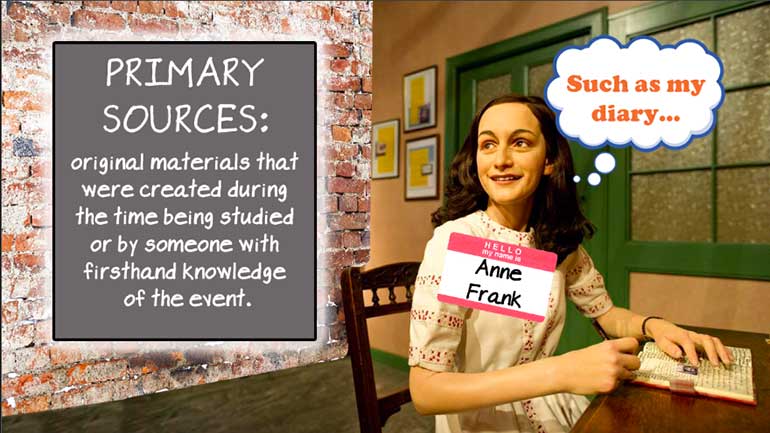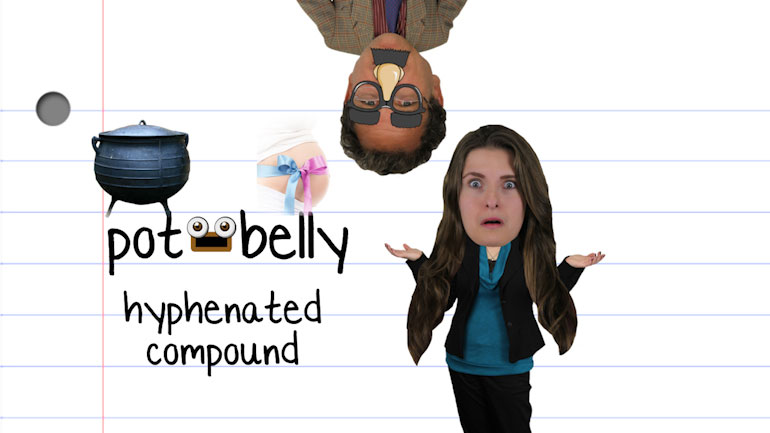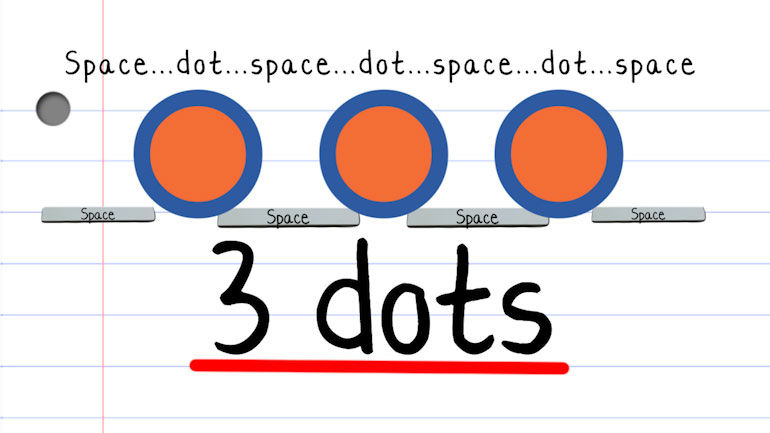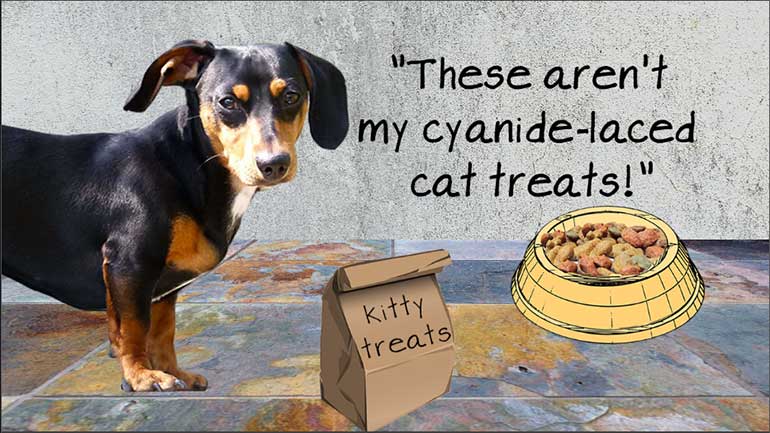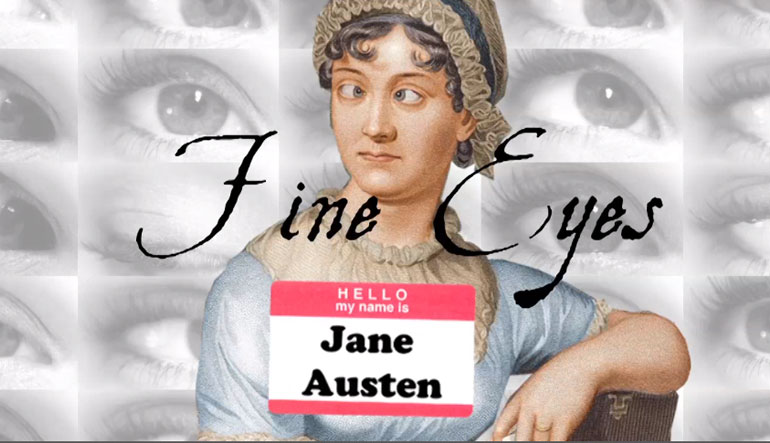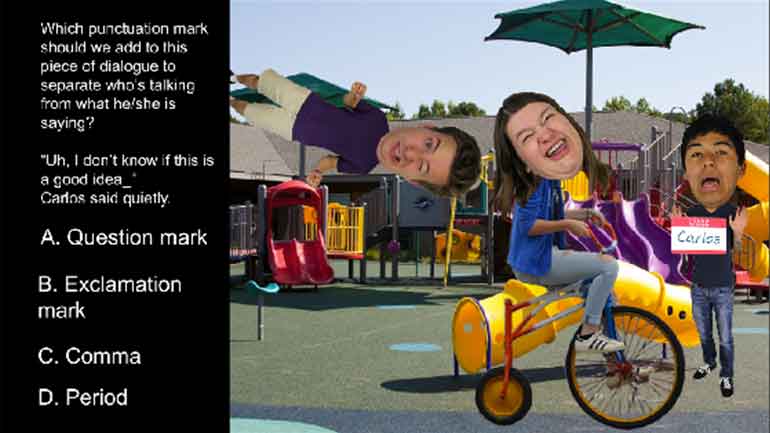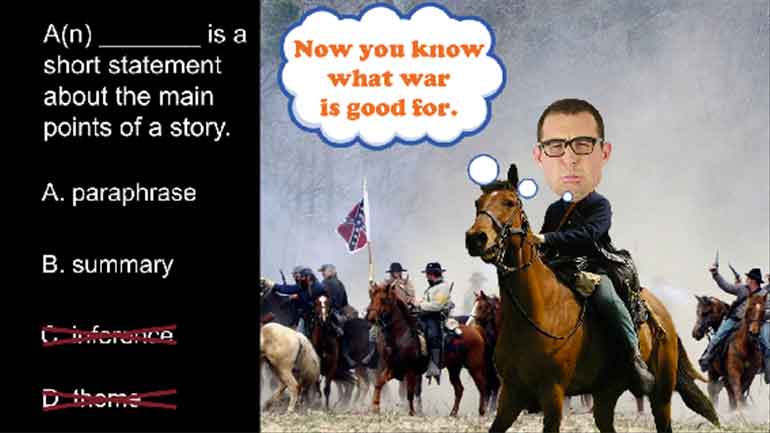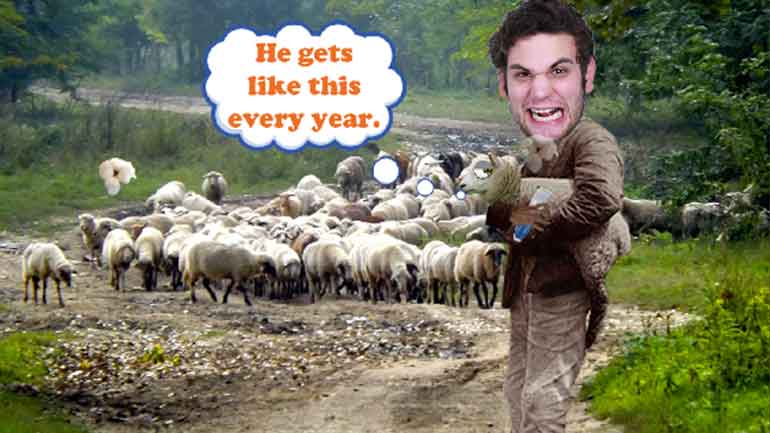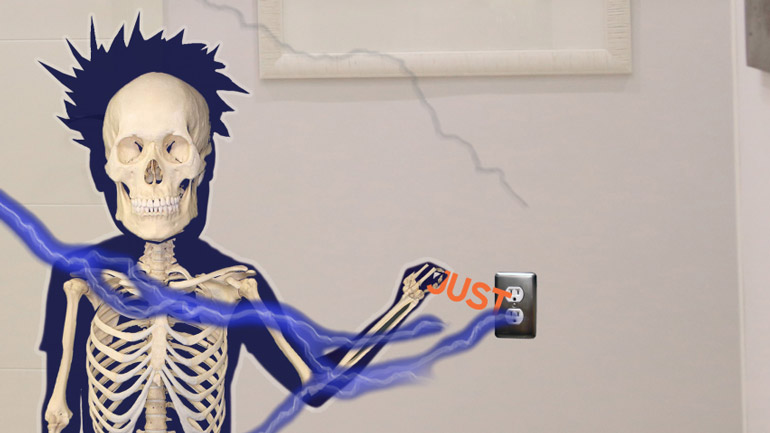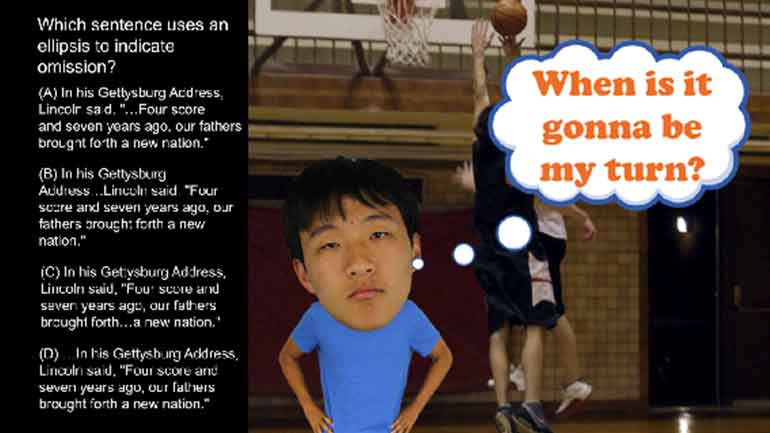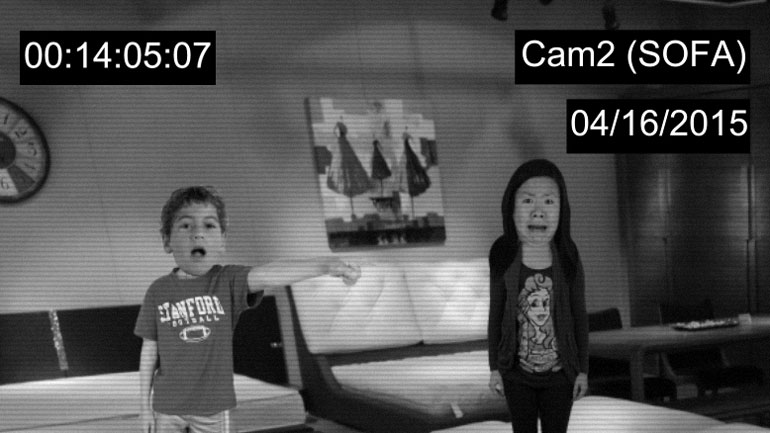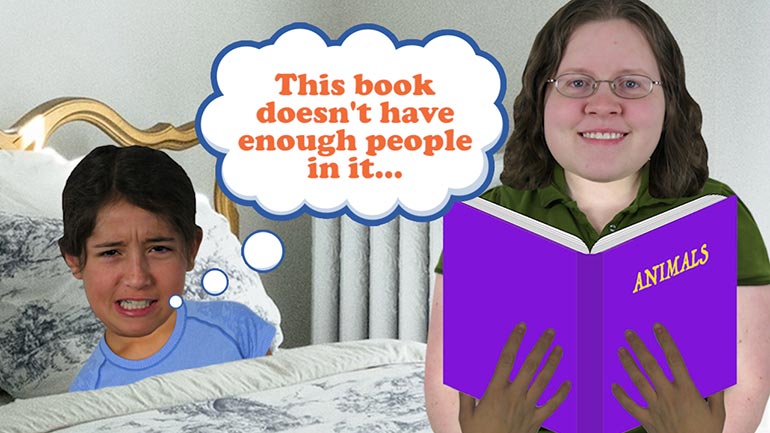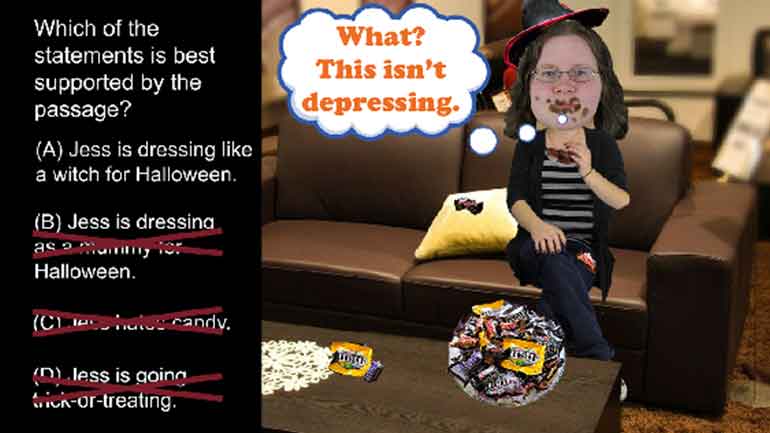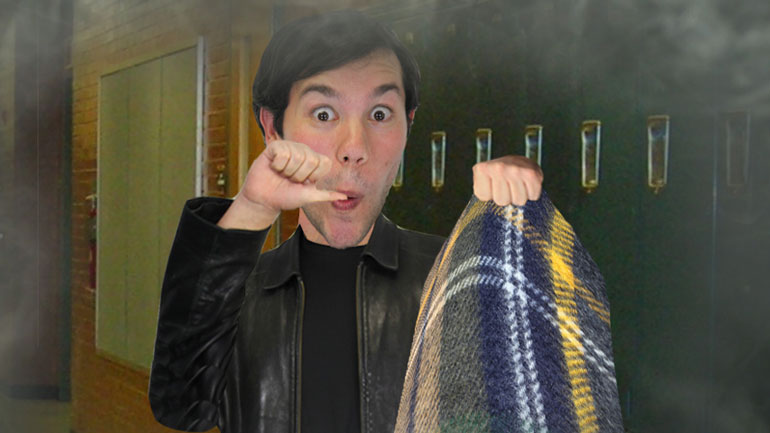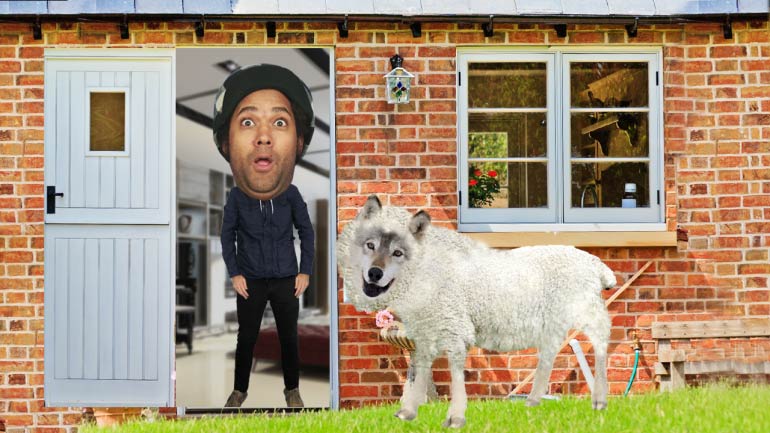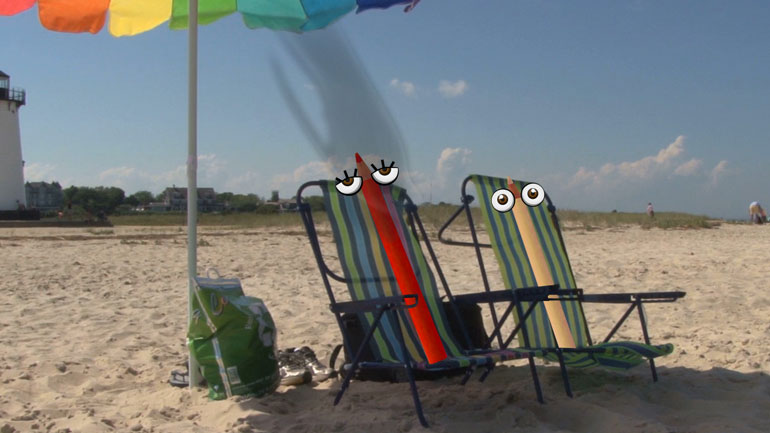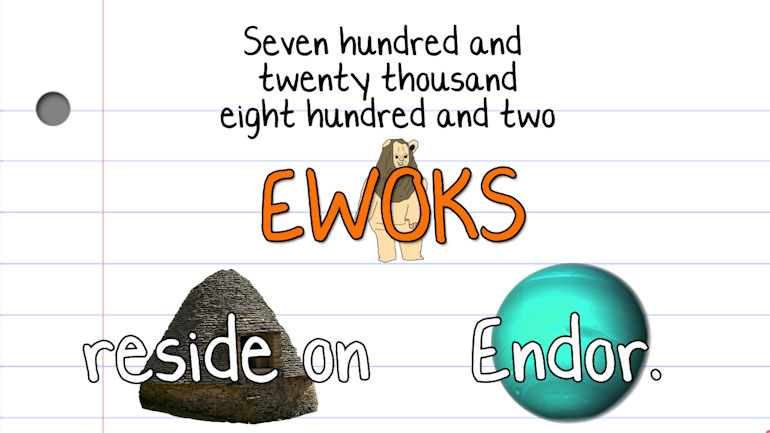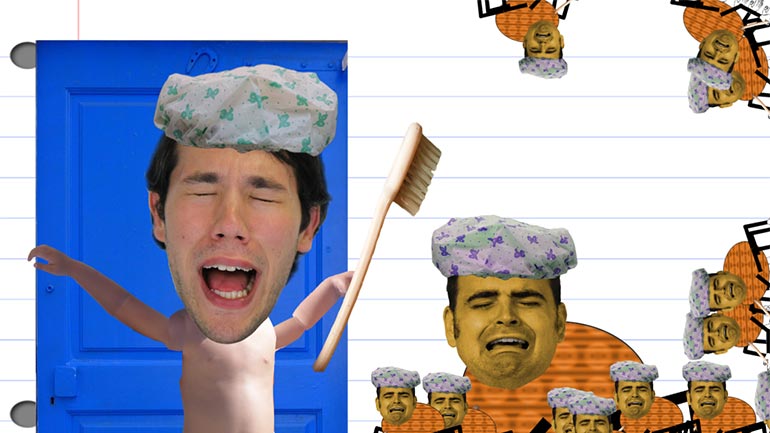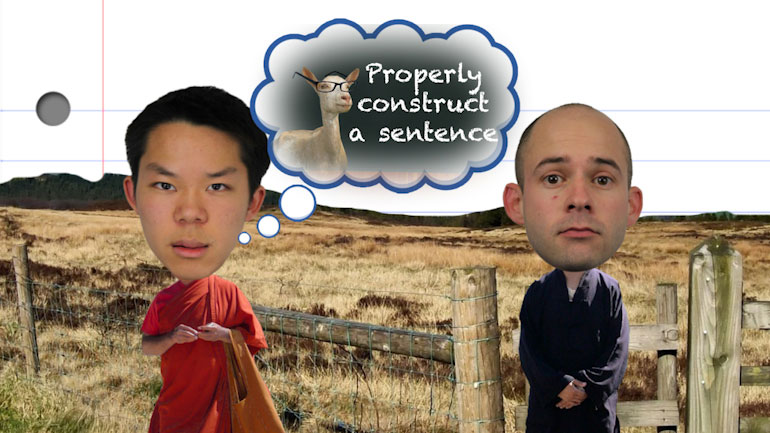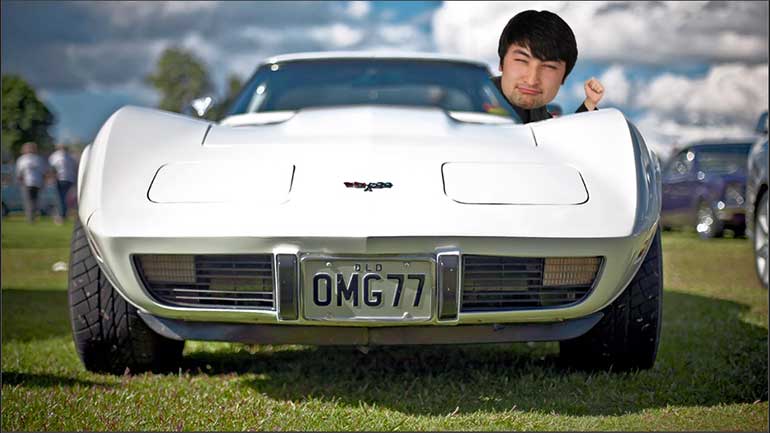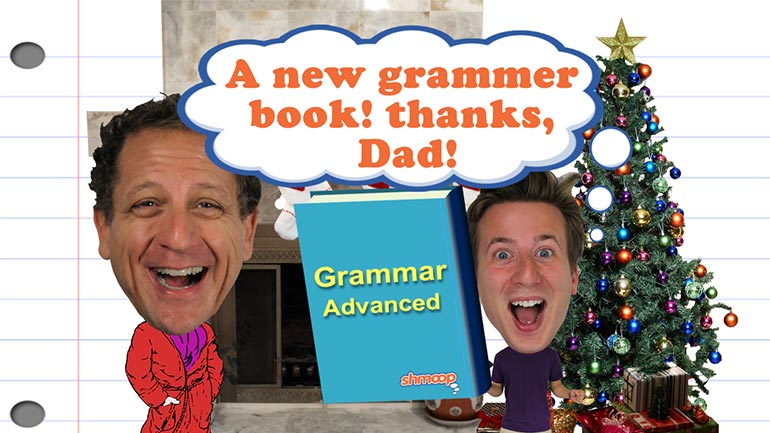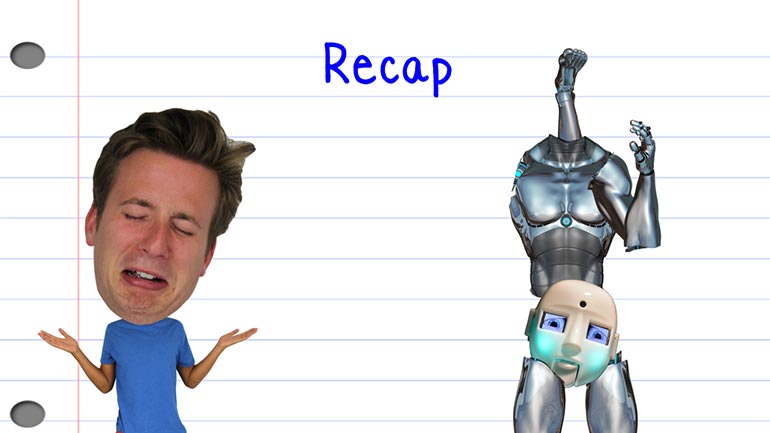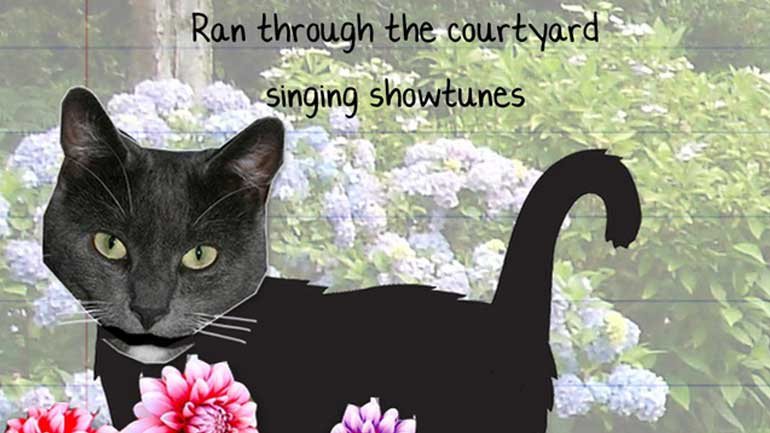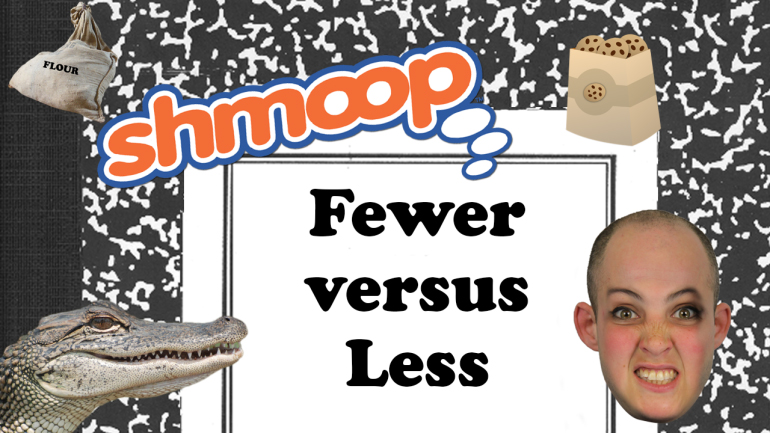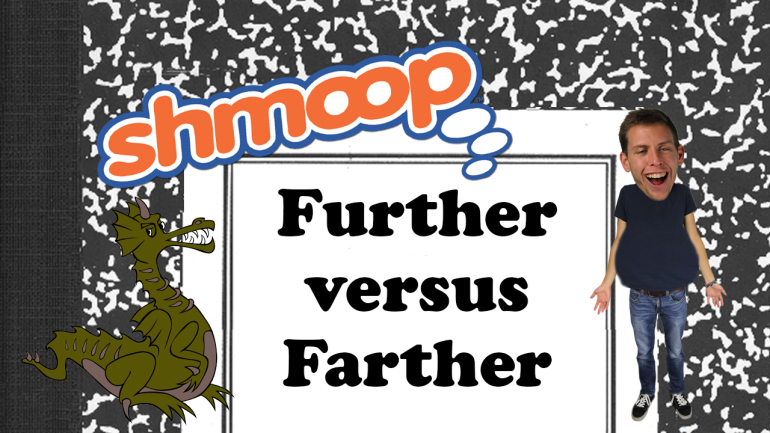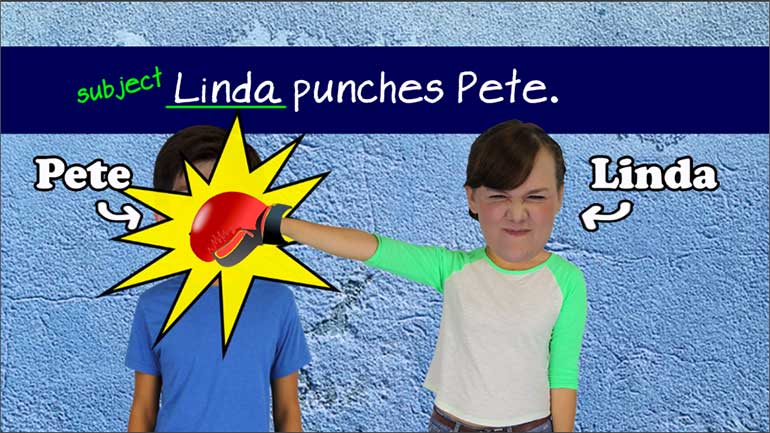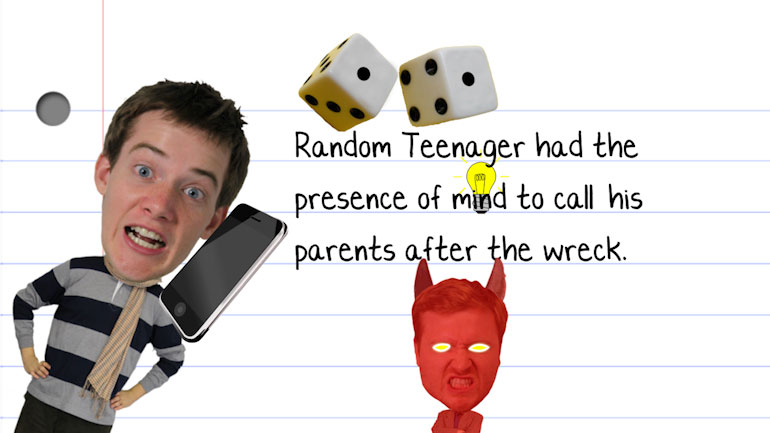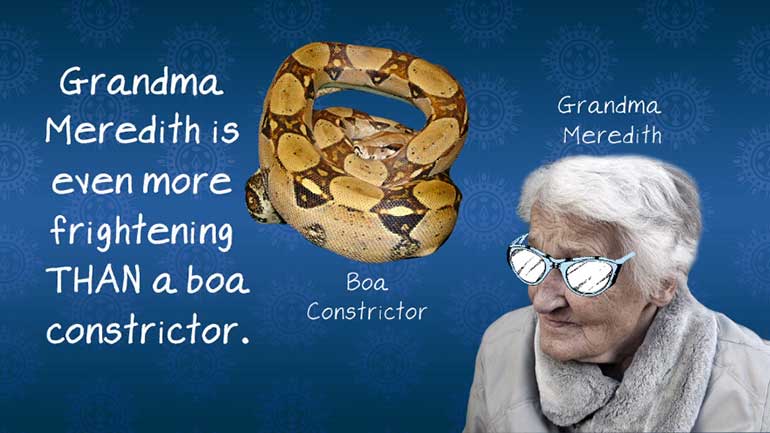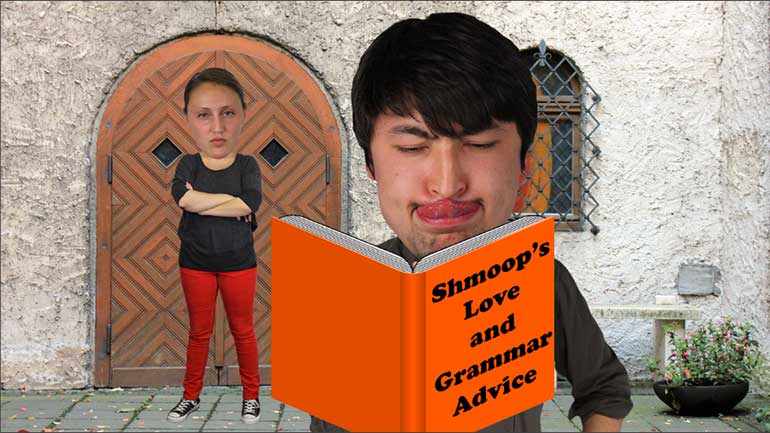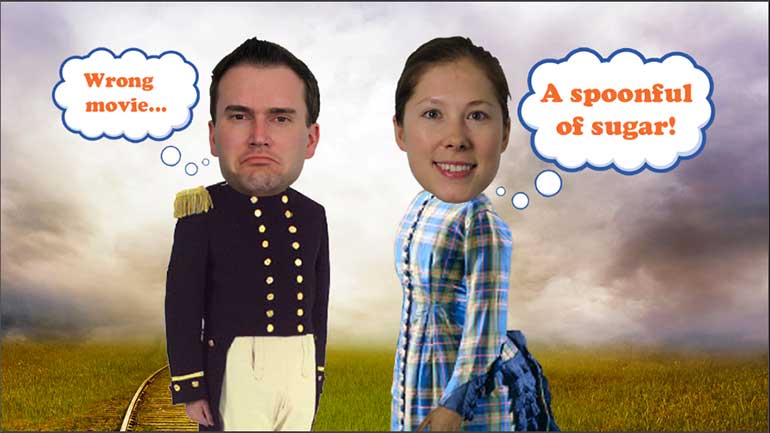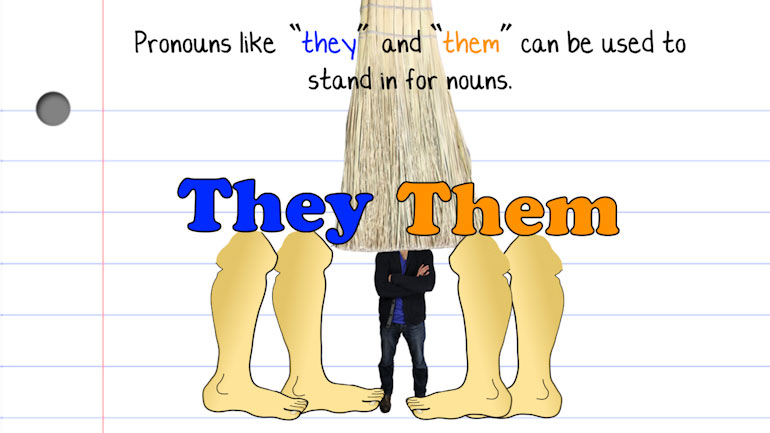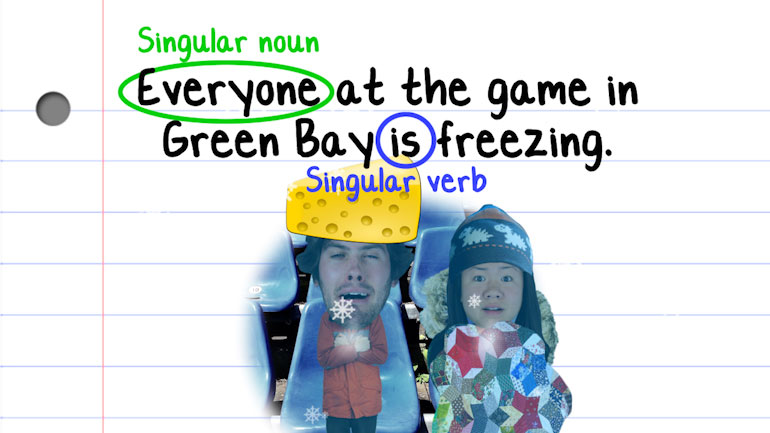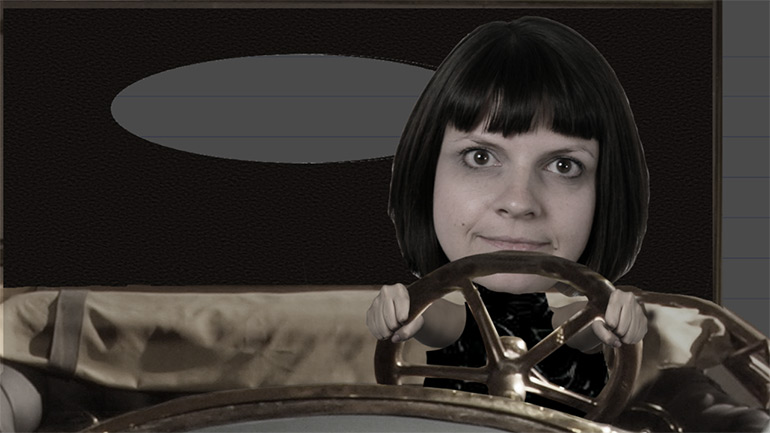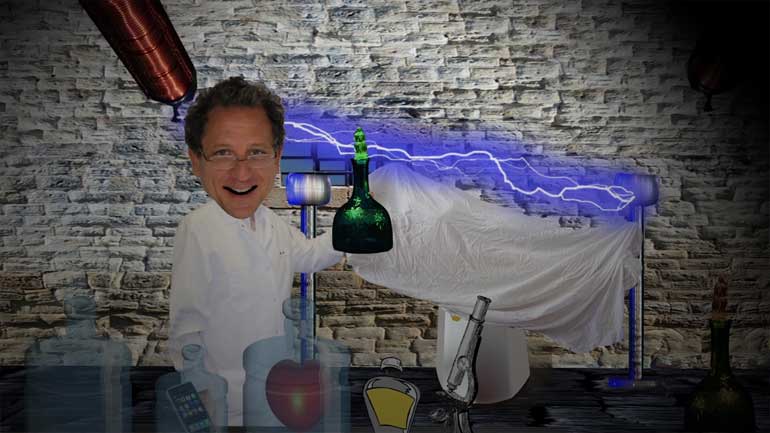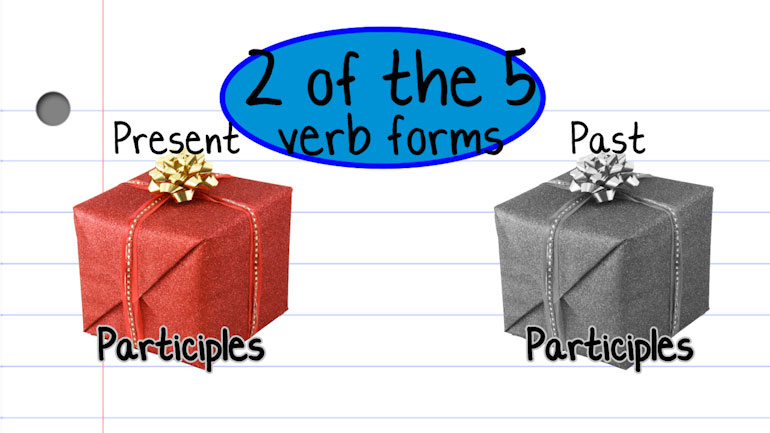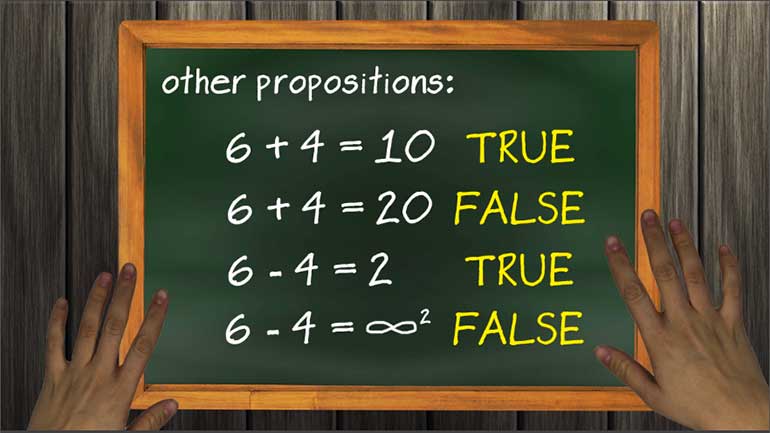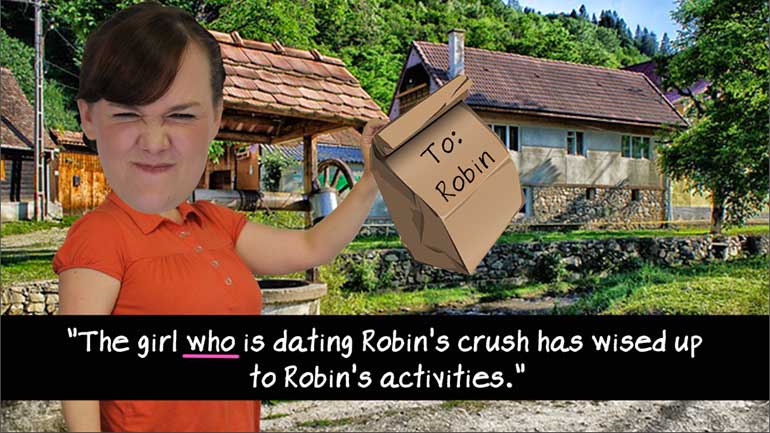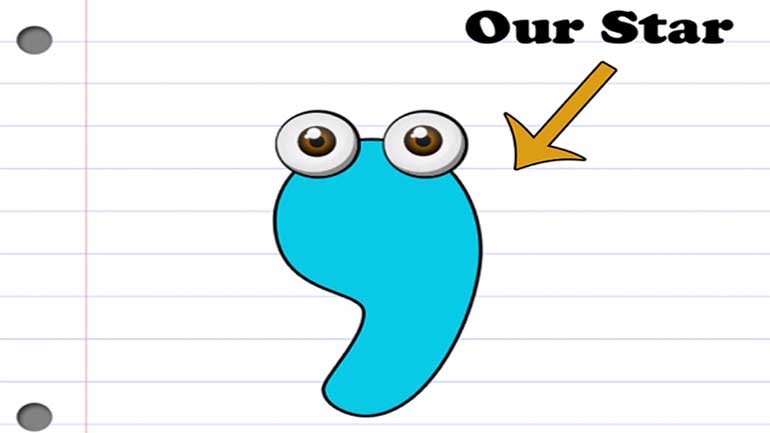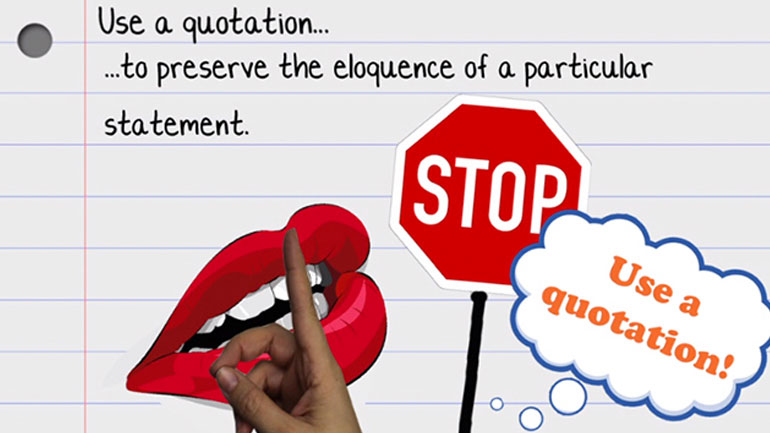ShmoopTube
Where Monty Python meets your 10th grade teacher.
Search Thousands of Shmoop Videos
English Videos 1712 videos
This video defines a primary source and what makes it different from a secondary source. What counts as original material? And where can we find th...
This video explains the difference between affect and effect and provide tips for remembering which is which and when to use each one. If you suffe...
Want even more deets on Question Marks? Click here to review. Or take a look at our entire grammar section for all the goods.
Can I End a Sentence in a Preposition? 515 Views
Share It!
Description:
Want even more deets on ending a sentence with a preposition? Take a look at our entire grammar section for all the goods.
Transcript
- 00:04
Can I End a Sentence in a Preposition? a la Shmoop
- 00:07
You hear it every morning. You put on your robe, exit your cloistered chambers, greet
- 00:11
the day with barely-open eyes… and then ask the bishop, “Where is the goat at?”
- 00:16
And he always responds in that superior tone of his, “He’s probably in school, learning
- 00:20
how to properly construct a sentence.”
Full Transcript
- 00:23
That bishop can be a real pain sometimes.
- 00:25
All you want to do is milk a goat to make some yogurt. You don’t want a grammar lesson.
- 00:29
So, while flagellating yourself in your chambers, you ask the heavens, “Can I end a sentence
- 00:34
in a preposition?”
- 00:35
<<booming, God voice>> YES.
- 00:37
Okay. It’s not quite so simple. There are always exceptions.
- 00:40
First, what the H-E-double hockey sticks is a preposition?
- 00:43
A preposition is a word that creates a relationship between two words, usually having to do with
- 00:49
space or direction, or time.
- 00:52
For example, The goat went over the fence.
- 00:55
Over is the preposition, telling what direction the goat went in relation to the fence.
- 01:01
Another example is: I saw the goat before lunch.
- 01:05
Before is the preposition, telling when in time the goat was seen.
- 01:11
Almost all of the time, a preposition needs an object.
- 01:13
You can’t say: I saw the goat before.
- 01:15
Before what? Before breakfast? Before the apocalypse?
- 01:20
However, you don’t need an object if the object is self-explanatory or is elsewhere
- 01:27
in the sentence.
- 01:28
For example: What did I just step in?
- 01:31
If you want to get picky, the one-hundred-percent grammatically correct way to say this is “In
- 01:38
what did I just step?”
- 01:40
But no one, not even monks, talk like that. So it’s okay to say “What did I step in?”
- 01:44
to avoid sounding snooty or pedantic.
- 01:47
Basically, If there’s no other way to word it without sounding like a person from another
- 01:52
century, it’s a-ok.
- 01:55
So is it okay to end a sentence with a preposition?
- 01:58
Or should we say, what kind of prepositions can you end a sentence with?
- 02:03
A preposition always needs an object.
- 02:05
But the object can be elsewhere in the sentence, not just after the preposition.
- 02:10
If it sounds better with the preposition at the end, then it’s totally fine to do so.
- 02:15
And you can tell the bishop that, if he has a problem with it, he can talk to US.
Related Videos
This video explains the difference between affect and effect and provide tips for remembering which is which and when to use each one. If you suffe...
Want even more deets on Question Marks? Click here to review. Or take a look at our entire grammar section for all the goods.
Want even more deets on Your vs. You're? Click here to review. Or take a look at our entire grammar section for all the goods.
What’s the difference between its and it’s (spoiler alert: it’s more than just an apostrophe). This video covers the use of both of these wor...
